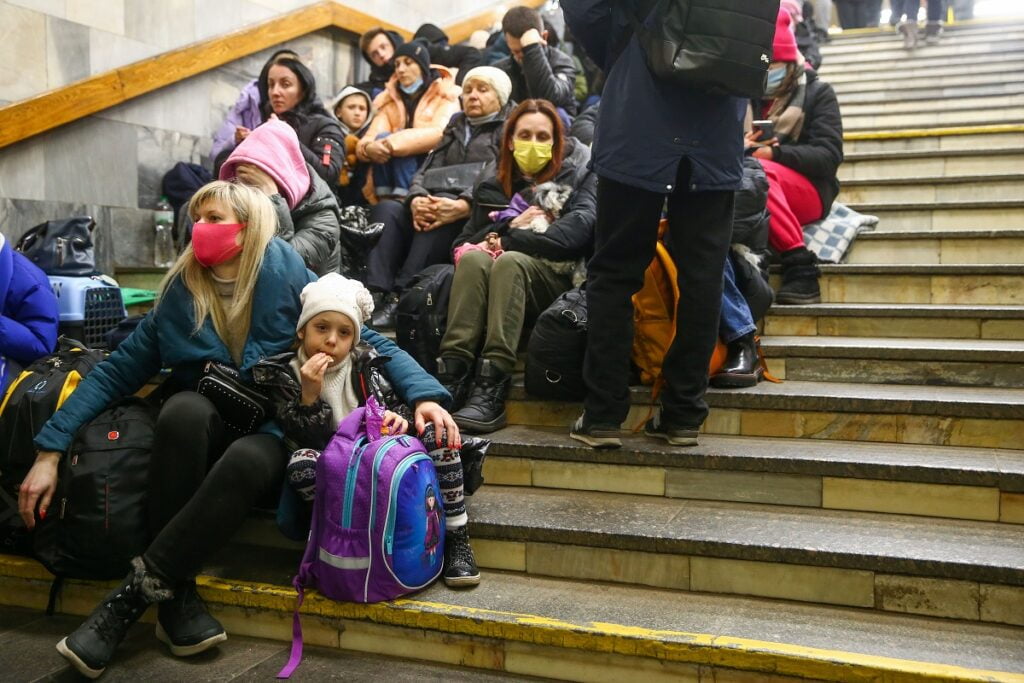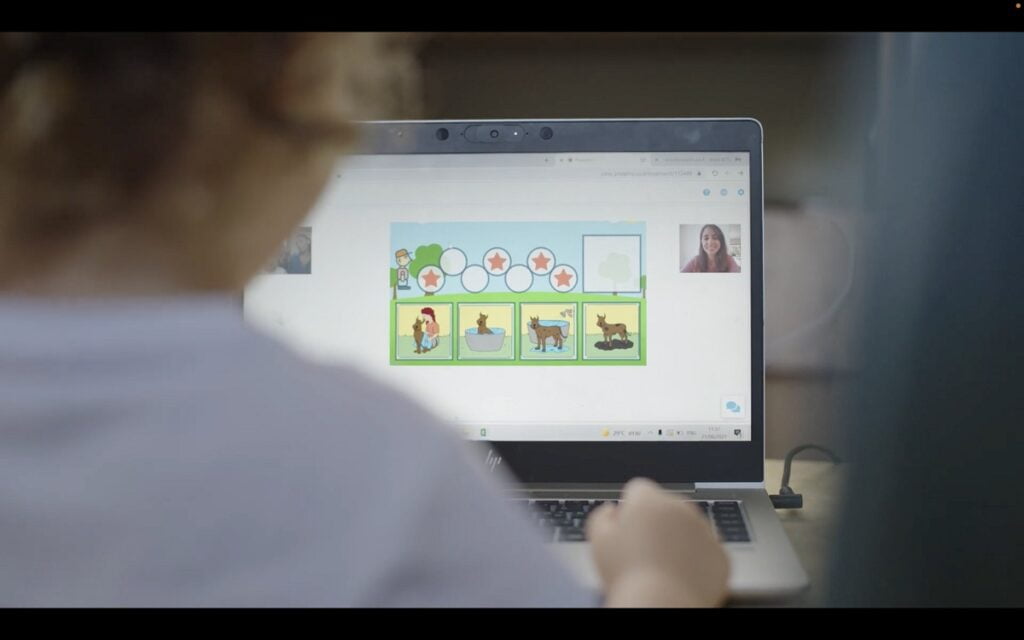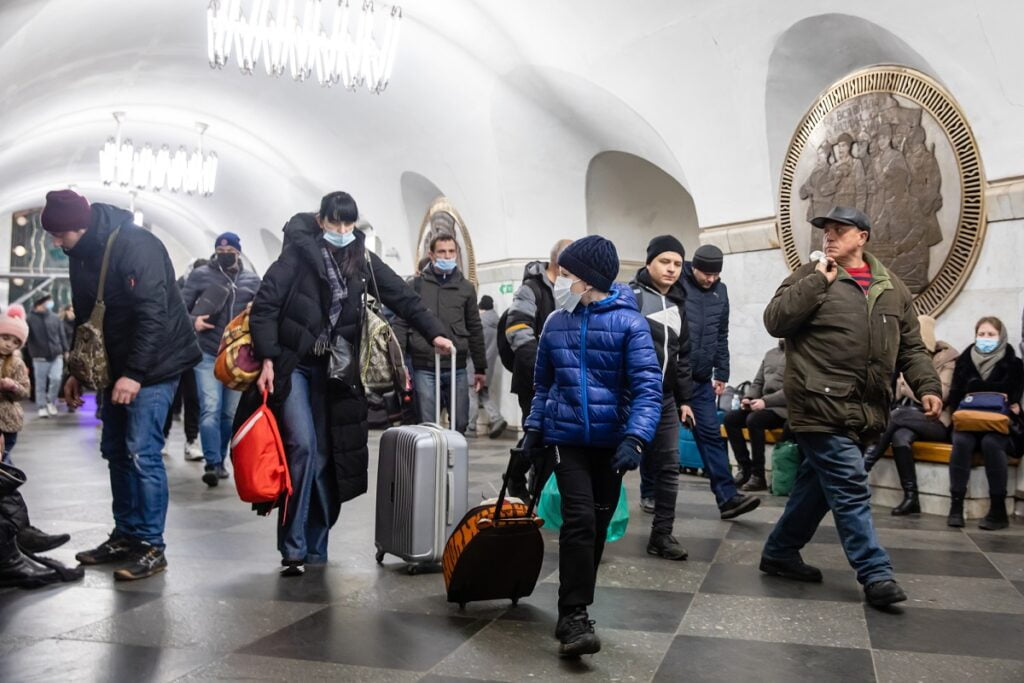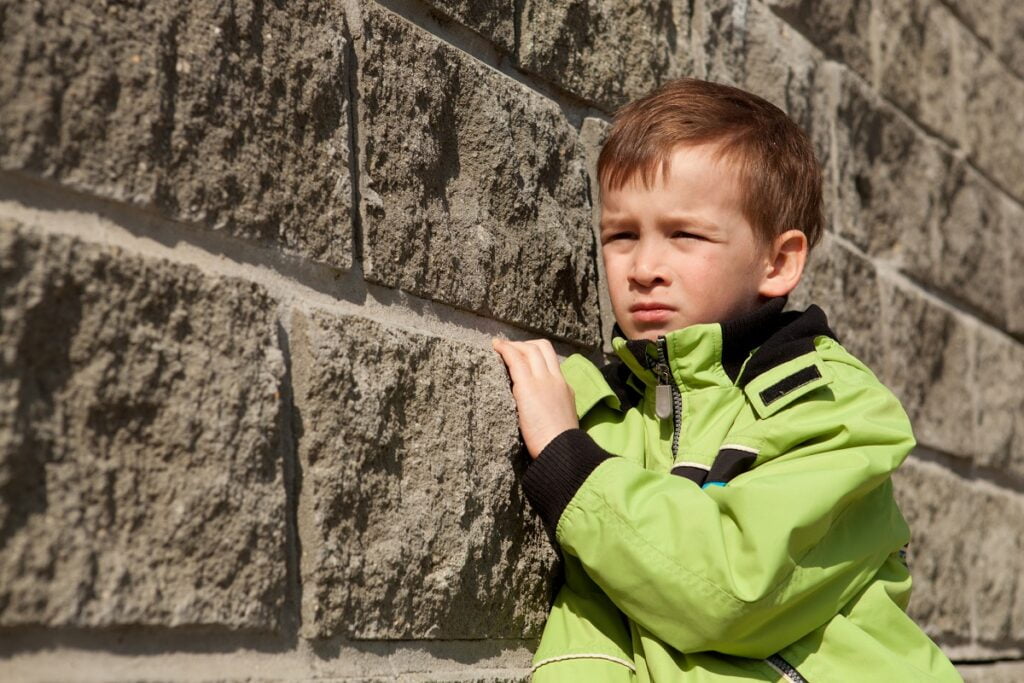Three Israeli health-tech companies — focusing on mental health, special education for children, and digital medical services — have joined forces to offer remote medical and emotional assistance for Ukrainian families in need of emotional support and medical help during the current conflict. The services are all being offered free of charge.
“It launched last night. It was built in 48 hours and now we have to polish it,” Dr. Yair Shapira, CEO and founder of Amplio Learning, tells NoCamels. He says Amplio and the other two companies each had to add each of their components and find the Russian-and-Ukrainian-speaking medical professionals to join the platform in just two days. “We are seeing a huge flood in demand and building it as we move.”
The companies formed a cooperation to launch the platform, KAF, to offer these free, remote digital services which are connected to a number of Ukrainian-and-Russian-speaking health professionals from Israel dedicated to remote medical and emotional assistance for children and adults.
The companies that make up the platform are Kai, an AI-powered personal coach that integrates scientifically-proven wellness tools and techniques to support mental well-being, Amplio Learning, a platform that provides resources for students with learning difficulties, emotional difficulties, and special needs, and Femi, a company offering digital medical services.
Children bear invisible wounds of conflict, UNICEF said in an article published last month highlighting ongoing conflict in east Ukraine, and its increasing affect on the mental health of boys and girls.
Many children in armed conflict face nightmares, panic attacks, and social isolation and are often deprived of basic needs, supportive environments, education opportunities, and other resources that promote their well-being and development.
Russia’s invasion of Ukraine last week has been traumatic for the children of Ukraine. In general, it has affected many of the country’s most well-known cities including the southern port city of Odessa and its capital Ukraine, a city of 2.8 million people. Russia has carried out missile strikes on Ukraine’s infrastructure, according to President Volodymyr Zelensky, and explosions have been heard throughout the country. The northeastern region of Kharkiv has seen fighting in the streets. Meanwhile, more than 500,000 Ukrainians have become refugees in countries like Poland, Romania, and Moldova, but many have also stayed in their homes or found shelter in basements, parking lots, and subway stations.

“First and foremost, we are mothers and fathers. Our heart goes out to all victims of the Russian invasion of Ukraine, especially the children,” Alex Frenkel, Kai co-founder and CEO, tells NoCamels, “We see the pain and suffering inflicted on the Ukrainian population. but we also see the bravery and defiance in light of darkness.”

Shapira tells NoCamels it all started Friday morning when a group of mostly human resource executives from Israeli tech firms created a group to help the thousands of Ukrainians working for Israeli companies. “I think the reason that the Israelis were first to help was because of two things. One is that we really empathize, we really understand what it means to be in bomb shelters we understand what it means to be with kids in bomb shelters for a while with this uncertainty hearing shells falling around. And second is because we know how to move very fast. When there is an earthquake, we always get there before anyone else. I don’t think that many nations can set up such an activity within 48 hours,” Dr. Shapira adds.
The companies will provide children with remote support and emotional therapy. “As a company that deals with child care on a daily basis, we realized that we could not stand aside,” he adds, “We wanted to create a system that would provide an immediate and free therapeutic response specifically to the children of Ukraine.”
Sign up for our free weekly newsletter
Subscribe“Exposure to violence on this scale, particularly during formative years, can lead to years of PTSD, anxiety, and depression,” says Frenkel, “Real-time, online emotional support can help prevent years of trauma. We are here to offer psychological and emotional support at this transformative moment in an effort to diminish long-term implications for the young witnesses of this conflict.”
Remote health care
Ukrainians who are looking for remote medical and mental support can join a video call with professional Ukrainian-speaking doctors and health professionals who can assist with medical-related questions, or they can join a private video call with mental health specialists who can provide emotional support in trying times. Finally, KAF provides anonymous chat for emotional, social, and mental support for teens. The teens can chat with professionals, other peers, and with Kai’s AI-powered bots using familiar apps like What’s App, Messenger, or Telegram.
“Kai is collaborating with psychologists around the world to provide life support to teens currently exposed to the crisis in Ukraine,” says Frenkel.
Founded in 2019, Kai offers support and solutions to life’s challenges and mental health problems through the practical application of acceptance and commitment therapy (ACT) and the psychological flexibility therapy model. Kai creates actionable steps for daily life, such as goal setting and journaling a uses a mood tracker, reflection prompts and breathing and meditation exercises to keep the user fulfilled As an AI hybrid, Kai combines machine learning models with NLP to give users emotionally intelligent and tailored responses. Kai’s messenger-based service provides a stigma-free space to share.

Etel Molcho, CEO of medical platform Femi tells NoCamels that it “has hundreds of skilled and available professionals, including Russian-speaking psychologists and social workers, who are skilled in providing mental health counseling and identifying crisis situations,” she explains, “Everyone has extensive experience in helping children in crisis. We are harnessed around the clock to help Israeli children in the situations of conflict that have taken place in Israel, and we are harnessed out of a sense of mission to also help children who are at the heart of the conflict in Ukraine. These professionals combined with the technology will be able to provide remote medical care and psychological help from Israel.”
Amplio Learning (formerly NiniSpeech) was initially started by Dr. Shapira to help kids with stuttering problems but he says it didn’t take long to understand that “millions of other children have different special needs.”
“As we moved forward, we understood that we need to expand from stuttering, because it’s a small fraction of special needs. So we expanded it first to speech and language, then to dyslexia, then to the entire world of special education,” he explains.
Amplio is a platform that includes a learning platform that includes evidence-based curricula, as well as programs for special education disabilities that are proven to accelerate progress. These curricula includes skills establishment and activities which kids can practice, later boosting the intensity as they move forward. The platform leverages artificial intelligence, machine learning, and natural language processing (NLP) to automate the feedback process. The platform provides feedback automatically using this system in collaboration and in tandem with licensed certified educators.
“There are [few] medical [and mental health] services in Ukraine now. Regardless of the war, you have a cold, you have COVID, what do you do? With that, we said ok, our company Amplio and several partners, can create an easily accessible service to help Ukrainians obtain help from professionals in the field,” Dr. Shapira says.
Related posts

Editors’ & Readers’ Choice: 10 Favorite NoCamels Articles

Forward Facing: What Does The Future Hold For Israeli High-Tech?

Impact Innovation: Israeli Startups That Could Shape Our Future




Facebook comments